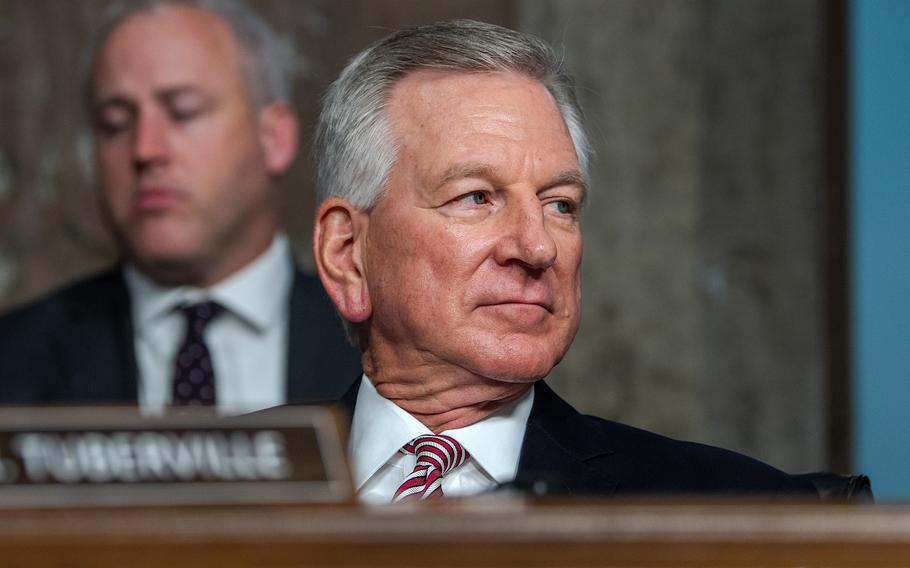The Pentagon is seen on Oct. 21, 2021. (Robert H. Reid/Stars and Stripes)
WASHINGTON — The Pentagon’s policy to provide leave and travel expenses for troops who must travel to obtain an abortion or other reproductive care was used only 12 times during seven months of Sen. Tommy Tuberville’s block of hundreds of military promotions in protest, a defense official said Tuesday.
Tuberville, R-Ala., initiated his blockade of military nominations in February 2023 when the Pentagon announced its new policy guidelines that took effect in March. The Defense Department’s decision came after the U.S. Supreme Court reversed Roe v. Wade in June 2022 declaring the constitutional right to abortion no longer exists. Many states have since passed laws outlawing abortions in most cases.
Some of the most restrictive states, including Texas and Louisiana, are home to major military installations, and there was concern over how the new laws would affect troops.
The senator’s effort lasted until December when he lifted his remaining holds, allowing the Senate to confirm more than 400 military nominations.

Sen. Tommy Tuberville, R-Ala., attends a Senate Armed Services Committee hearing in July 2023. (Carlos Bongioanni/Stars and Stripes)
Pentagon spokeswoman Sabrina Singh said Tuesday that the Defense Department’s policy was used 12 times from June to December to cover reproductive services at a cost of $40,791.20. The travel conducted by service members does not mean it was specifically for an abortion. Troops could have used the policy for reproductive matters such as in vitro fertilization, ovarian stimulations and egg retrieval, Singh said.
“Basically, any type of non-covered reproductive health service that the department does not cover and is not available in [a service member’s] state,” she added.
For the privacy of individuals, Singh said the Pentagon will not release a breakdown of the 12 cases and the health care that troops traveled to receive.
Tuberville’s promotions blockade drew criticism, including from some Republicans. In December when he lifted the remaining holds, Tuberville said his decision to allow the confirmation of hundreds of lower-level nominees was inspired by Sens. Dan Sullivan, R-Alaska, and Joni Ernst, R-Iowa. Both had spent hours on the Senate floor attempting to approve nominees.
The senator at the time said he did not regret his blockade and described the outcome of his protest as a “draw.”
“They didn’t get what they wanted,” Tuberville said. “We didn’t get what I wanted.”